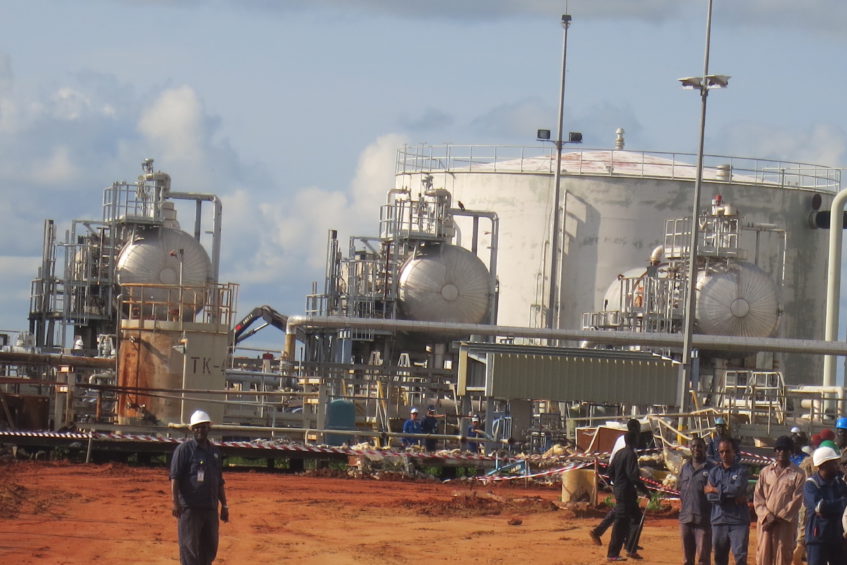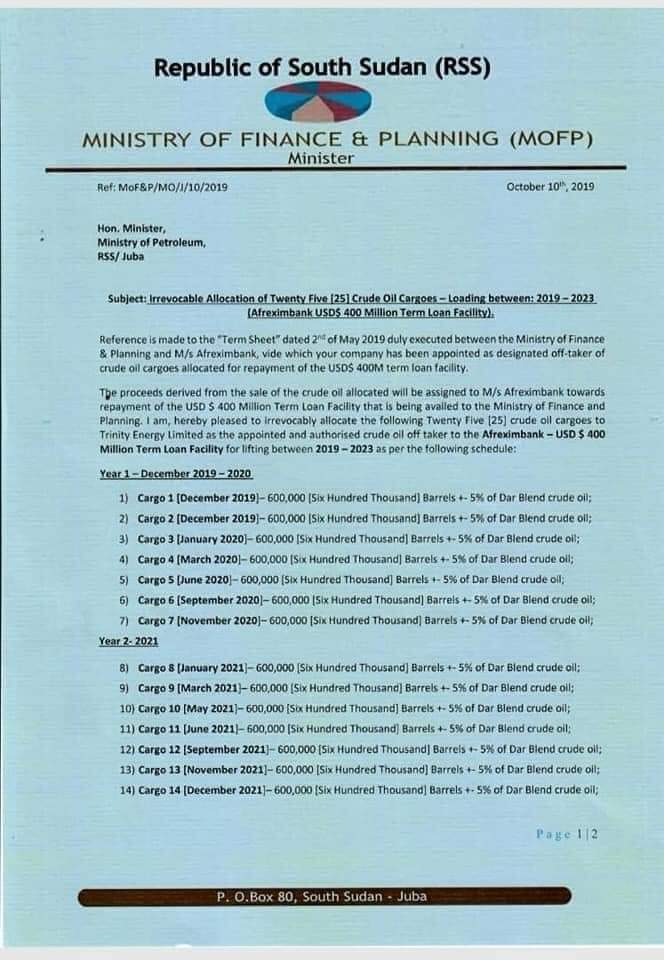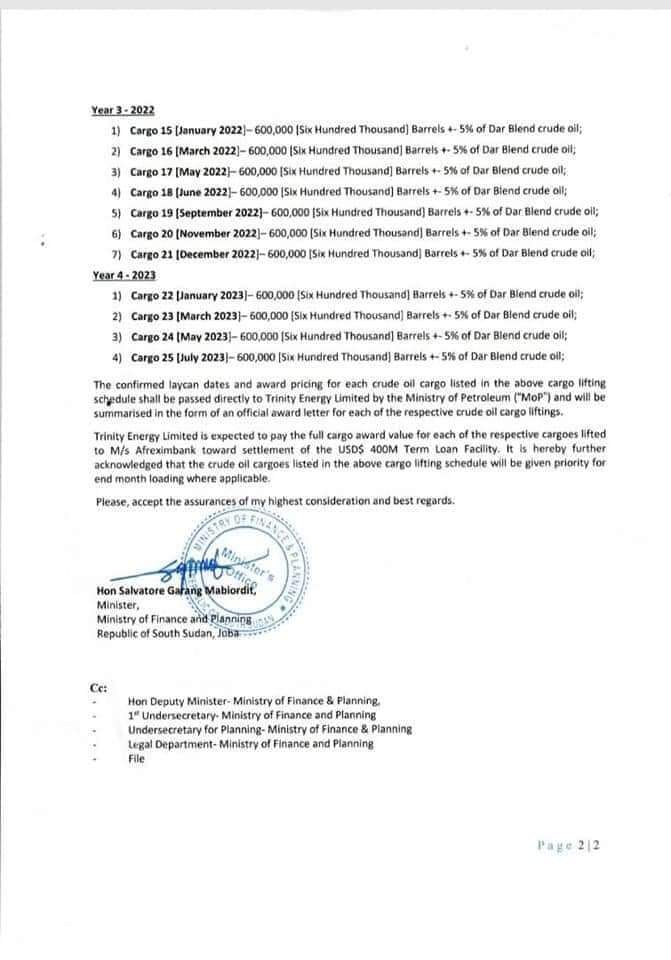
An oil facility in Unity State | File photo
A document from the ministry of finance indicated that former ministers had pre-sold fifteen-million barrels of crude oil to Afreximbank for a $400-million-loan.
The document dated October 10th 2019 was signed by former finance minister Salvatore Garang Mabiordit.
It states that the millions of South Sudan’s crude oil barrels, allocated to Trinity Energy Limited as the appointed and authorized crude oil off tanker to the African Export-Import Bank.
According to the deal, they were to be lifted from December 2019 to July 2023.
Each cargo has 600,000 barrels, representing five percent of Dar Blend crude oil.
Dar Blend is a heavy, acidic crude produced at the Block 3 and Block 7 oil fields in South Sudan’s Upper Nile State.
The lifting of the crude oil – the document said– was to be passed to Trinity Energy Limited by the ministry of petroleum.
Speaking to journalists in Juba last week, the minister of finance, Agak Achuil said that the former minister, Salvatore spent millions of dollars.
“The money which was spent before I could come in was $334 million, this is the money people are talking about that I am sitting on, and I don’t want to spent it, that was the money spent by those of Salvatore and Athian,” Achuil said in a press conference in Juba last week.
“The other money was 225 million US dollars, these were the money which were spent and they [WB, IMF] are still waiting for the auditing.”
Former minister of finance Salvatore Garang who signed the deal was fired by President Salva Kiir in September 2020 and replaced by Athian Diing Athian.
His sacking came after the economic crisis management committee recommended firing some officials of revenue-generating institutions over corruption.
In June 2019, the International Monetary Fund said South Sudan’s habit of taking loans from various continental and global banks -with the promise to repay them with proceeds from future oil revenues -is expensive and nontransparent.
President Salva Kiir then instructed the then Minister of Petroleum, Daniel Awou not to demand or accept oil advances before the actual sale of South Sudan’s crude oil to the international market.
He said the government should only receive money that is generated from the oil sale and not loans.
In May last year, some citizens criticized the government for continually taking money from international financial institutions in the name of the people, but delivering no services.
They said the economy continued to deteriorate despite the loans the government often takes.
The World Bank, African Export-Import Bank, the African Development Bank, and the International Monetary Fund have been the biggest lenders to South Sudan since 2011.
In June 2020, the government secured $4.1 million to support coronavirus emergency response in South Sudan.
In August of the same year, the World Bank’s Board of Executive Directors approved a $45 million grant to improve access to basic infrastructure and strengthen community institutions.
Then in October 2020, the government of South Sudan approved a loan of $313 million from the African Export-Import Bank to fix the crumbling economy.
In February 2021, the African Development Bank signed off a $14-million grant to improve food production and boost the marketing and trade of agricultural products in South Sudan.
The following month, the International Monetary Fund approved a disbursement of $174.2 million under the Rapid Credit Facility to address coronavirus pandemic-related effects to the economy.
This totals nearly $600 million of borrowed money in just less than a year.
It was also revealed in September 2020 that the Central Bank owes commercial banks in Juba nearly $100 million.
Despite all these, the government of South Sudan is still unable to pay civil servants on time.
Last week, the Minister of Finance, Agak Achuil said the country’s oil proceeds have been sold in advance up to 2027.


Support Eye Radio, the first independent radio broadcaster of news, information & entertainment in South Sudan.
Make a monthly or a one off contribution.
Copyright 2024. All rights reserved. Eye Radio is a product of Eye Media Limited.